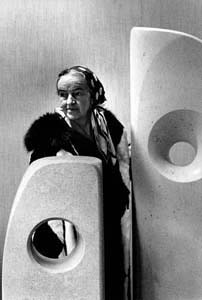A Quote by M. Esther Harding
Conflict is the beginning of consciousness.
Quote Topics
Related Quotes
Life, as we all know, is conflict, and man, being part of life, is himself an expression of conflict. If he recognizes the fact and accepts it, he is apt, despite the conflict, to know peace and to enjoy it. But to arrive at this end, which is only a beginning (for we haven’t begun to live yet!), a man has got to learn the doctrine of acceptance, that is, of unconditional surrender, which is love.
When you have a conflict, that means that there are truths that have to be addressed on each side of the conflict. And when you have a conflict, then it's an educational process to try to resolve the conflict. And to resolve that, you have to get people on both sides of the conflict involved so that they can dialogue.
Consciousness will always be present, though a particular
consciousness may cease. For example, the particular tactile
consciousness that is present within this human body will cease when
the body comes to an end. Likewise, consciousnesses that are
influenced by ignorance, by anger or by attachment, these too will
cease. But the basic, ultimate, innermost subtle consciousness will
always remain. It has no beginning, and it will have not end.
You are so accustomed to think of yourselves as bodies having consciousness that you just cannot imagine consciousness as having bodies. Once you realize that bodily existence is but a state of mind, a movement in consciousness, that the ocean of consciousness is infinite and eternal, and that, when in touch with consciousness, you are the witness only, you will be able to withdraw beyond consciousness altogether.
I heard about Bhagavad Gita very early in my childhood, from the age of five onwards. It was one of the earliest things I started to read when I started to read. And it was very much a part of my consciousness. In the beginning, I saw the "Bhagavad Gita" as a text that was very classical, much like the "Iliad" and the "Odyssey" - a mythical saga that showed the eternal conflict between good and evil. But much later, as I grew up, I realized that it was much more than that.
Since consciousness is the basis of all reality, any shift in consciousness changes every aspect of our reality. Reality is created by consciousness differentiating into cognition, moods, emotions, perceptions, behavior, speech, social interactions, environment, interaction with the forces of nature, and biology. As consciousness evolves, these different aspects of consciousness also change.




































